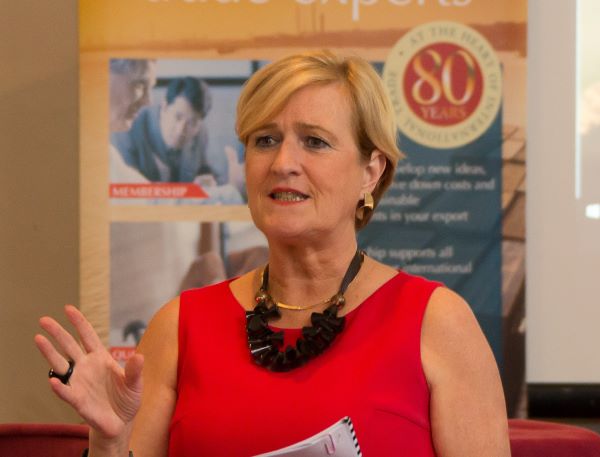
The Director General of the Institute of Export & International Trade, Lesley Batchelor OBE, has been across the BBC this week discussing trade continuity deals, the continuing uncertainty around Brexit and how businesses can do more to prepare for it. With the original date for the UK’s withdrawal from the EU (March 29th) an inevitable focus, Lesley argued that the UK’s exporters are simply not ready for Brexit, particularly a ‘No Deal Brexit’, whenever that date does actually occur.
Trade Continuity Deals - are we ready?
On Wednesday 20th March, Lesley was asked by BBC Radio 5 Live’s ‘Wake Up to Money’ programme about whether the trade continuity deals agreed with countries like Iceland, Norway and Switzerland suggest the UK is in good shape for trade post Brexit. Noting that we don’t yet know many of the specific details of how many of these agreements would impact our exporters, Lesley was keen to say that these deals are a step in the right direction. Importantly, though, we do not yet know how each of the 97 or 99 chapters in the Harmonized Commodity Description and Coding System are going to be covered in many of these agreements.
Should all 40 of the trade deals or arrangements that the UK has with non-EU countries through its membership of the EU be rolled over, this would still only represent around 14% of the UK’s total trade. Lesley noted that businesses can do more to prepare now, in terms of gaining an understanding of how to complete the necessary paperwork for selling into these markets post Brexit. However, we don’t know many of the duty rates or other taxes that businesses will need to pay.
No such thing as an average exporter
A week later Lesley appeared on the BBC World Service’s Marketplace Morning Report, again discussing trade continuity deals. The implications of trading with new tariffs was made clear, as Lesley noted that the costs could go up for many importers of British products, especially if a ‘No Deal Brexit’ were to occur. This would make British businesses less competitive and could disrupt their long-term relationships with partners in overseas markets.
Lesley was keen to point out that there is no such thing as an ‘average exporter’, with 5,300 HS Codes (or categories against which duties and other trade-related taxes are applied) implying that there are thousands of different potential impacts of Brexit.
Marketplace Morning Report (live on the BBC World Service) – Listen in from 4:10 to hear Lesley
Lesley also appeared on the BBC World News on Thursday 28th March. Here she discussed the costs of Brexit on our businesses, preparations at the port of Dover and the impact to the Dover area in general, where £250m (or $350m) is being spent in preparing infrastructure for a potential ‘No Deal’.
BBC World News programming is not broadcast on iPlayer.
Formerly known as 'Article 50 Day'
On the supposed ‘Day of Reckoning’ – the original date for the UK’s withdrawal as set out in the initial triggering of Article 50 in 2017 – Lesley was asked further questions about our exporters’ readiness for Brexit. On BBC York she noted that the additional paperwork businesses will need to complete due to Brexit could be significant, citing Honda’s claim that they would themselves have around 60,000 additional pieces of paperwork to complete.
With the UK’s trade deficit remaining an economic challenge, these additional challenges for our exporters are not ideal, and businesses need to be doing more to prepare for them.
Later that morning, Lesley spoke with BBC Cambridge about how businesses have nonetheless invested a lot of time and money into contingency planning for Brexit but noted the difficulties businesses are facing when planning which markets to export to due to not knowing what the eventual tariffs will be. Lesley noted that the Institute is here to help businesses with these considerations, but continuing uncertainty around Brexit isn’t helping the UK to fully embrace the export opportunities that are out there.



